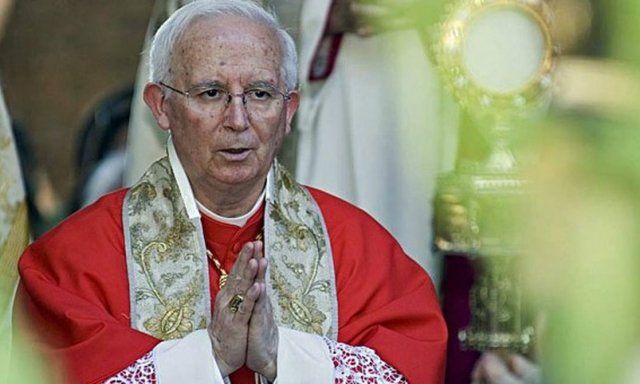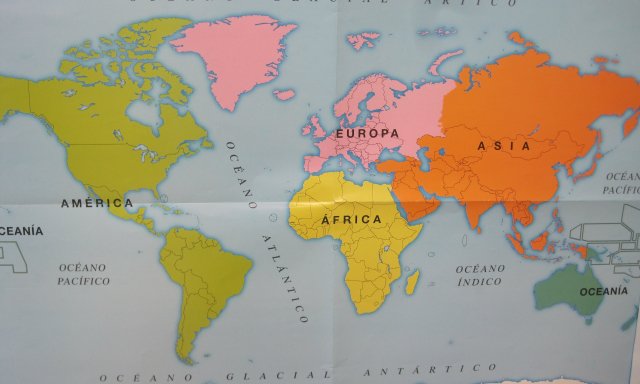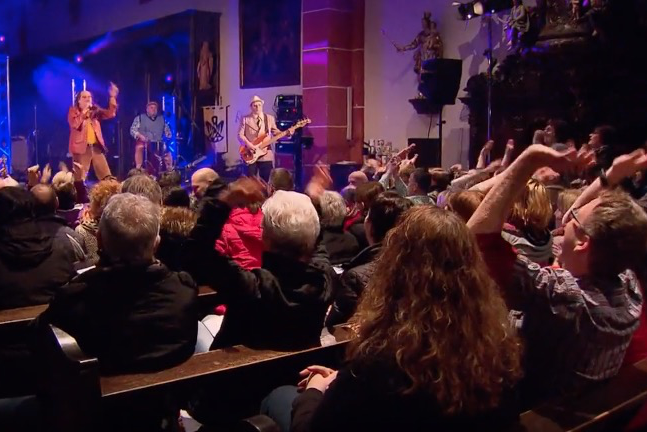- Registrado
- 26 Ago 2013
- Mensajes
- 22.639
- Calificaciones
- 137.621
CONFIDENCIAL
¿Podemos vivir sin curas?
Monseñor Cañizares sí reconoce el fracaso de las vocaciones: todos los curas son viejos.
Eulogio López 05/05/18 18:00

cardenal cañizares
A pesar de los 16 curas ordenados en Madrid, que no está mal, lo cierto es que el problema persiste. Días atrás hablábamos en Hispanidad de que en una zona de Francia alguien se había preocupado de hacer la estadística y salía a un cura por cada 75 campanarios.
Y sin curas no hay sacramentos
Pues bien, no estamos solos en la desgracia. El cardenal Cañizares, arzobispo de Valencia piensa que, en efecto, se ha encendido la alerta roja por falta de curas. No vamos a decir lo del comunista Pepón, para quien “el infierno no era una invención de los curas sino los curas una invención del infierno” pero lo cierto es que el catedrático de Historia de la Universidad de Alcalá, don Javier Paredes, no sé si con la misma delicadeza pero con más desfachatez que Cañizares, concluye lo mismo.
Y sin sacramentos la vida de gracia es posible, pero poco probable
¿Podemos vivir sin curas? La primera y primaria respuesta es que “hasta demasiado bien”. A fin de cuentas, ¿quién no ha deseado alguna vez matar a un cura? Ahora bien, el asunto tiene su peligro, porque, sin curas, no hay sacramentos y, sin sacramentos, la vida de gracia es posible pero poco improbable. En especial la Eucaristía y no olvidemos que sin Eucaristía, la iglesia, la humanidad y el mundo, se vienen abajo. Mismamente, ese es el peligro que nos acecha ahora mismo.
Y sin Eucaristía, sencillamente no hay iglesia
Sí, esto de la falta de curas puede ser un problema. Y si los pocos curas que quedan son viejos, el problema se agrava. Porque claro, una cosa es tener 75 campanarios a tu cargo y otra tener piernas de 75 tacos.
¿Podemos vivir sin curas? via @hispanidad.com http://www.hispanidad.com/confidencial/podemos-vivir-sin-curas_12001049_102.html
¿Podemos vivir sin curas?
Monseñor Cañizares sí reconoce el fracaso de las vocaciones: todos los curas son viejos.
Eulogio López 05/05/18 18:00

cardenal cañizares
A pesar de los 16 curas ordenados en Madrid, que no está mal, lo cierto es que el problema persiste. Días atrás hablábamos en Hispanidad de que en una zona de Francia alguien se había preocupado de hacer la estadística y salía a un cura por cada 75 campanarios.
Y sin curas no hay sacramentos
Pues bien, no estamos solos en la desgracia. El cardenal Cañizares, arzobispo de Valencia piensa que, en efecto, se ha encendido la alerta roja por falta de curas. No vamos a decir lo del comunista Pepón, para quien “el infierno no era una invención de los curas sino los curas una invención del infierno” pero lo cierto es que el catedrático de Historia de la Universidad de Alcalá, don Javier Paredes, no sé si con la misma delicadeza pero con más desfachatez que Cañizares, concluye lo mismo.
Y sin sacramentos la vida de gracia es posible, pero poco probable
¿Podemos vivir sin curas? La primera y primaria respuesta es que “hasta demasiado bien”. A fin de cuentas, ¿quién no ha deseado alguna vez matar a un cura? Ahora bien, el asunto tiene su peligro, porque, sin curas, no hay sacramentos y, sin sacramentos, la vida de gracia es posible pero poco improbable. En especial la Eucaristía y no olvidemos que sin Eucaristía, la iglesia, la humanidad y el mundo, se vienen abajo. Mismamente, ese es el peligro que nos acecha ahora mismo.
Y sin Eucaristía, sencillamente no hay iglesia
Sí, esto de la falta de curas puede ser un problema. Y si los pocos curas que quedan son viejos, el problema se agrava. Porque claro, una cosa es tener 75 campanarios a tu cargo y otra tener piernas de 75 tacos.
¿Podemos vivir sin curas? via @hispanidad.com http://www.hispanidad.com/confidencial/podemos-vivir-sin-curas_12001049_102.html










